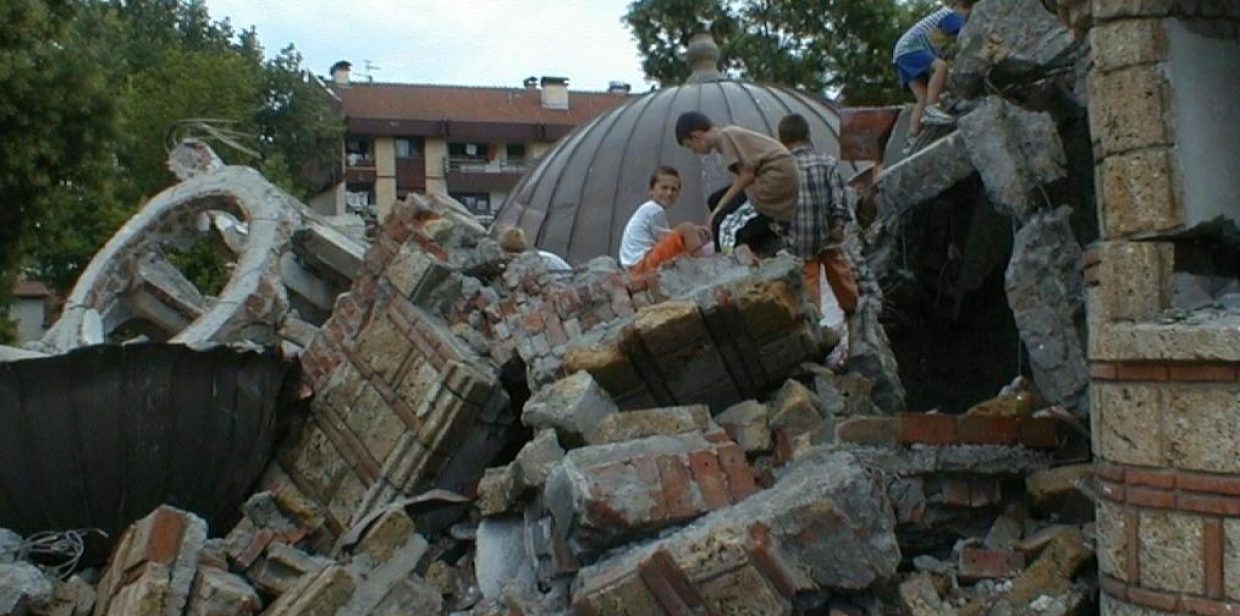War leaves more than just scars on the battlefield—it imprints deep wounds on communities, nations, and the very fabric of humanity. When war crimes enter the picture, these wounds become profoundly complex, impacting not only victims and survivors but the entire post-conflict landscape. Understanding how war crimes shape the process of healing and reconciliation after a conflict is essential for building lasting peace. In this article, we’ll explore the critical ways accountability, truth-telling, and justice influence the journey from devastation toward restoration—and what this means for societies striving to move beyond their darkest chapters.
Table of Contents
- The Lasting Impact of War Crimes on Collective Memory and Trauma
- The Role of Truth Commissions in Acknowledging Atrocities and Fostering Trust
- Building Inclusive Justice Systems to Support Victims and Communities
- Strategies for Sustainable Reconciliation and Preventing Future Conflicts
- Wrapping Up
The Lasting Impact of War Crimes on Collective Memory and Trauma
War crimes leave an indelible mark not only on victims but on entire societies, shaping how collective memory is constructed and preserved. These atrocities become ingrained in the public consciousness through generations, influencing national narratives and identity. Memorials, literature, and education often serve as vessels that carry these memories forward, ensuring that the horrors endured are neither forgotten nor repeated. Yet, this collective remembrance can evoke a complex mix of emotions—pride in resilience, grief over loss, and the persistent shadows of trauma that hinder societal healing.
Understanding the profound effects of war crimes involves recognizing key elements that exacerbate or alleviate collective wounds:
- Denial and silence: Suppression or refusal to acknowledge atrocities can deepen trauma, perpetuating mistrust and resentment.
- Truth and acknowledgment: Open dialogue and official recognition foster a foundation for reconciliation and empathy.
- Justice and reparations: Legal accountability and tangible restitution help validate survivors’ experiences and promote closure.
- Intergenerational transmission: Trauma passed down through families and communities underscores the need for comprehensive support systems.
These factors function as both barriers and bridges in post-conflict spaces, highlighting the necessity for holistic approaches that address emotional, social, and historical dimensions of healing.
The Role of Truth Commissions in Acknowledging Atrocities and Fostering Trust
In the aftermath of conflict, uncovering the truth about past atrocities is crucial to rebuilding societies fractured by violence. Truth commissions act as vital instruments in this process, serving as impartial bodies that investigate and document human rights violations without the adversarial nature of a courtroom. These commissions provide a platform for victims to share their stories, validate their suffering, and ensure historical accuracy, which is essential in countering denial and revisionism. By exposing uncomfortable realities, truth commissions pave the way for public acknowledgment and collective healing, challenging societies to confront painful legacies instead of burying them.
Moreover, truth commissions play a transformative role in cultivating trust among divided communities. Their work often includes recommending institutional reforms and reparations, which can help address systemic injustices that fueled the conflict. Through transparent proceedings and inclusive outreach, they promote dialogue and reconciliation, fostering an environment where forgiveness and coexistence become attainable. Key elements that underscore their impact include:
- Restoration of dignity to victims by validating their experiences publicly
- Transformation of societal narratives from blame to understanding
- Enhancement of governmental accountability through recommendations and reforms
- Strengthening the social contract between citizens and the state for sustained peace
Building Inclusive Justice Systems to Support Victims and Communities
Creating justice systems that genuinely serve victims and communities requires an approach far beyond punitive measures. It involves acknowledging the full spectrum of harm inflicted—not only the physical or material losses but also the deep psychological scars that persist long after conflicts end. Incorporating voices from survivors, local leaders, and affected populations reshapes these systems into instruments of healing rather than mere retribution. Such inclusivity fosters community ownership of justice processes, empowering those who were previously marginalized or silenced to actively participate in restoring social cohesion.
Key strategies to enhance these systems include:
- Establishing victim-centered tribunals that prioritize dignity and protection
- Integrating traditional and restorative justice practices alongside formal legal mechanisms
- Providing accessible psychosocial support and reparations tailored to community needs
- Ensuring transparency and accountability to rebuild trust in institutions
These measures work collectively to transform justice from a static concept into a dynamic process of reconciliation, allowing fractured societies to piece back together the trust and hope essential for lasting peace.
Strategies for Sustainable Reconciliation and Preventing Future Conflicts
Addressing the deep wounds left by war crimes requires more than just surface-level solutions—it demands a holistic and inclusive approach that centers victims and affected communities. Central to this process is the empowerment of local voices, encouraging grassroots participation in truth-telling initiatives and reconciliation dialogues. Emphasizing restorative justice mechanisms alongside formal prosecutions can bridge the divide, allowing perpetrators to acknowledge harm and communities to rebuild trust. Furthermore, integrating educational programs that highlight the atrocities committed and promote mutual understanding helps cultivate a culture of peace that resists the resurgence of conflict.
Preventing future conflicts hinges on the establishment of robust and transparent institutions committed to upholding human rights and the rule of law. This involves the creation of early warning systems powered by both community networks and technology to identify signs of escalating tensions. Supporting economic development programs targeting war-affected regions reduces vulnerabilities exploited by violent factions. International cooperation and sustained funding are equally critical, as they provide the scaffolding for long-term peacebuilding efforts. Together, these strategies form the backbone of resilient societies capable of transforming past horrors into catalysts for justice and enduring stability.
- Community-led truth commissions to validate experiences and foster healing
- Restorative justice programs balancing accountability with reconciliation
- Peace education curricula promoting empathy and non-violence
- Strengthening judicial independence and anti-corruption frameworks
- Economic empowerment initiatives targeting vulnerable populations
- International partnerships for monitoring and support
Wrapping Up
As we’ve seen, confronting war crimes is not just about justice—it’s a crucial step toward healing the deep wounds left by conflict. Acknowledging the past, holding perpetrators accountable, and giving voice to survivors all contribute to rebuilding trust and fostering genuine reconciliation. While the road to recovery is long and complex, understanding the role war crimes play in post-war healing reminds us that peace is more than the absence of violence—it’s the presence of justice, memory, and hope for a shared future.













